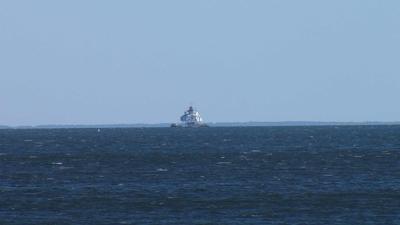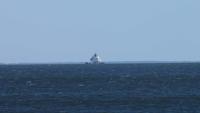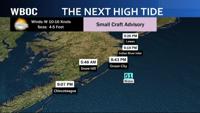ANNAPOLIS, Md. - Some watermen say 2018 was one of the worst years yet for the Chesapeake Bay. In Annapolis on Tuesday, they turned to Maryland lawmakers for help.
In the 2019 Chesapeake Environmental and Economic Summit, Eastern Shore lawmakers joined watermen as Lieutenant Governor Boyd Rutherford took the podium, pledging to make an impact.
"Here in Maryland, we're willing to take bold action to address longstanding problems," Rutherford said.
Watermen like Jeff Harrison of the Talbot Waterman's Association say problems, including pollution and fisheries management, are making it tough to make a living, especially after record rains swamped Maryland and the Eastern Shore.
"With the rain storms we're getting, and the heavier rains, it's going to continue to be a problem," Harrison said.
Harrison says that rain along with tons of debris from states up North flowing through the Conowingo Dam led to what environmentalists call a "massive assault" on the Chesapeake Bay in 2018.
That's what Republican Delegate Jay Jacobs of District 36 is targeting with a new bill now in the works - holding the Conowingo Dam's owner, Exelon, responsible for cleaning up the Bay before more rain brings more debris.
"This is where it all starts," Jacobs said. "Then they would have the opportunity to go out and address some of this debris before it comes through the dam."
For other lawmakers, like Republican Senator Stephen Hershey of District 36, it's about oysters and putting more of them back into the Bay.
"The overall health of the Bay needs more shell," Hershey said. "If we want to increase the health of the Bay or do anything for water quality, oysters are the best filtration system and we need shell in order to do that."
Maryland farmers were also present at Tuesday's summit and say an unusually wet 2018 drowned and killed off a lot of their crops.
Queen Anne's County farmer Mitch Quillen says he worked tirelessly last year to re-grow his crops and reduce pollution running off his farm.
Like many Maryland watermen, Quillen says states up North should do more to cleanup the bay.
"We've done our part in the 200-mile estuary as the catch-basin and I think there's a 400-mile river system that needs to contribute too," Quillen said.
According to Maryland Grain Producers, Maryland farmers saved more than 3.5 million pounds of nitrogen and over 140,000 pounds of phosphorous from entering the bay thanks to their efforts in 2017.




